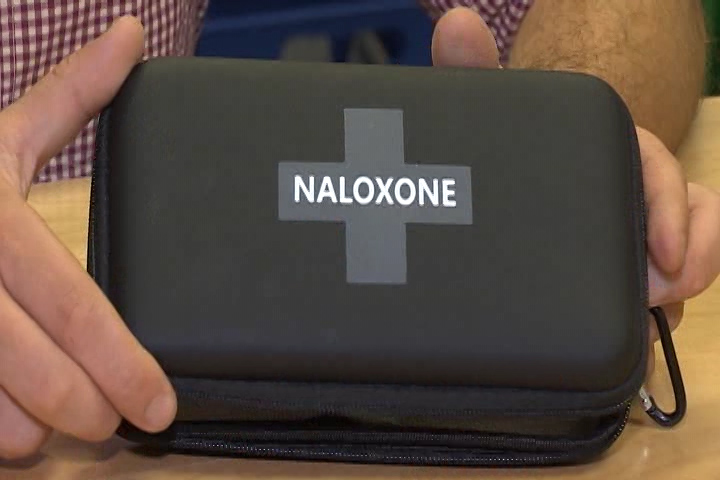Police officers in Ontario will be able to administer naloxone in an emergency without facing an investigation from the province’s police watchdog.

On Tuesday, the provincial government announced it had changed a regulation under the Police Services Act in order to eliminate the requirement for a Special Investigations Unit probe when an officer provides the opioid-overdose-reversing drug to someone who dies.
The new rules also apply if an officer provides first aid to a person who dies or suffers serious injury.
“No one should face unfair repercussions just because they are doing their job and trying to save a life,” Sylvia Jones, Minister of Community Safety and Correctional Services, said in a news release. “This amendment will enable police officers to carry out their duties without fear of facing a criminal investigation, but more importantly, it will also help save countless lives.”
The new regulation does not apply to cases where another interaction with police could have caused death or serious injury.
Policing unions had called for such a change after many large forces, including the OPP, began equipping officers with the life-saving drug in recent years.

Get daily National news
“When this regulation was written, naloxone was rarely used as a life-saving measure,” Rob Jamieson, president of the Ontario Provincial Police Association, said in a news release. “We are very pleased that the government is taking a fair and common sense approach to oversight with this update to the Police Services Act.”
The Special Investigations Unit has the mandate to investigate reports of serious injury, death or allegations of sexual assault involving police in Ontario.
In 2018, the agency invoked its mandate in 12 cases where police officers administered naloxone.
Of those, 10 were terminated within a month and two are ongoing, said Monica Hudon, a spokesperson for the SIU.
Earlier this year, under the Liberal government, the Special Investigations Unit Act was amended so that the SIU director would no longer investigate incidents where officers provided immediate medical care in cases that met certain requirements.
Naloxone, which is effective within minutes, targets opioid receptors in the brain to temporarily reverse an overdose. It works on drugs such as fentanyl, oxycodone and heroin.
Opioid overdoses killed 1,265 people in Ontario last year, according to data from Public Health Ontario.












Comments